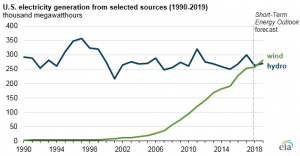US Senators Jeff Merkley (D-OR), Todd Young (R-IN), Tim Kaine (D-VA), and John McCain (R-AZ) introduced on Tuesday a bipartisan Senate resolution condemning the Burmese campaign of ethnic cleansing against the Rohingya and calling for the “safe, dignified, voluntary and sustainable return” of the refugees who have been displaced by this violence.
The Senators were also joined by Senators Dianne Feinstein (D-CA), Thom Tillis (R-NC), Dick Durbin (D-IL), Marco Rubio (R-FL), Chris Van Hollen (D-MD), Ron Wyden (D-OR), Edward J. Markey (D-MA), Elizabeth Warren (D-MA), Sherrod Brown (D-OH), Tina Smith (D-MN), and Chris Coons (D-DE).
The resolution comes as planned repatriation from Bangladesh to Burma has been postponed amid fears that the repatriation as currently planned would be neither safe nor voluntary.
“The crimes that have been perpetrated against the Rohingya are horrific and will haunt us for generations to come,” said Merkley, who led a congressional fact-finding mission to Burma and Bangladesh in November. “In the refugee camps in Bangladesh, I spoke with Rohingya who described systemic campaigns of rape and murder. I was shown the burns of women who fled as their homes burned around them. I saw the drawings made by children that depicted the Burmese military shooting innocent villagers as they fled. After a campaign of such violent ethnic cleansing, we must ensure that any repatriation of the Rohingya to their homeland is voluntary, safe and dignified.”
“The Burmese military’s systematic and deplorable campaign of violence against the Rohingya and other ethnic minorities displaced hundreds of thousands of people. I look forward to working with the administration and the international community to ensure refugee returns are voluntary, safe, and dignified,” said Senator Young. “An estimated 23,000 Hoosiers have ties to Burma. I will continue to help lead bipartisan efforts in Congress with respect to Burma—including holding the government there accountable and fostering deeper ties between Americans and Burmese from all backgrounds.”
“The continued persecution and horrific ethnic cleansing of the Rohingya by the Burmese military must stop, and we will not waiver until the perpetrators are held accountable,” Kaine said. “Today, we are speaking with bipartisan unity in calling on Burma and Bangladesh to protect the Rohingya and ensure they can return home in a manner that is safe and dignified.”
“The systematic human rights abuses committed against the Rohingya people in Burma have shocked all people of conscience. Since August, more than 650,000 innocent men women and children have been forced to flee a campaign of unspeakable violence that the United Nations has called a ‘textbook example of ethnic cleansing,’” said Senator John McCain, Chairman of the Senate Armed Services Committee. “Now, as the governments of Burma and Bangladesh move forward with repatriation plans, many Rohingya believe their return home will be met with more violence. These displaced families deserve to have confidence that their return will be safe, voluntary and dignified. The United States and the international community should stand for nothing less.”
The full text of the bipartisan resolution follows below
Urging the Governments of Burma and Bangladesh to ensure the safe, dignified, voluntary, and sustainable return of the Rohingya refugees who have been displaced by the campaign of ethnic cleansing conducted by the Burmese military.
Whereas, on August 25, 2017, attacks on security posts in Burma by the military group Arakan Rohingya Salvation Army resulted in a brutal, systematic, and disproportionate reprisal by the Burmese military and security forces on Rohingya villages in Rakhine State;
Whereas more than 650,000 Rohingya refugees have fled to Bangladesh since the Burmese military commenced its scorched-earth campaign, with the burning of villages and local monuments, and reports of widespread gang rape, starvation, killing, and forcible deportation;
Whereas the Government of Burma has consistently denied access to the United Nations Fact-Finding Mission on Myanmar established to investigate human rights violations around the country;
Whereas Bangladesh Prime Minister Sheikh Hasina proposed that “safe zones” be created inside Burma to protect all civilians irrespective of religion and ethnicity under United Nations (UN) supervision;
Whereas the United Nations High Commissioner for Refugees (UNHCR)’s mandate is to provide, in collaboration with other actors, international protection to refugees and to assist them in finding durable solutions through voluntary repatriation, local integration, or resettlement;
Whereas the UN General Assembly has repeatedly affirmed UNHCR’s function of facilitating the voluntary repatriation of refugees and, in recognition of the importance of sustainable return, has widened its mandate to include providing assistance for their rehabilitation and dealing with the consequences of their return;
Whereas the fundamental operational principles of voluntary repatriation are safety, to include legal and physical safety, and dignity, to include treatment with respect and full acceptance by their national authorities, including the full restoration of refugees’ rights;
Whereas, on November 23, 2017, the Government of Burma and the Government of Bangladesh signed an agreement, known as the “Arrangement”, on the return of displaced persons from Rakhine State, which is modeled after the 1992 repatriation agreement between Burma and Bangladesh;
Whereas the Arrangement includes references to restoring normalcy and human rights in Rakhine State, for refugee returns to comply with international standards of safety, dignity, and voluntariness, and to commencing a process to address root causes in line with the Rakhine Advisory Commission recommendations;
Whereas approximately 236,000 Rohingya refugees returned to Burma under the terms of the 1992 agreement, only to continue to be denied citizenship, face prejudice, violence, and persecution, and in many instances be forced to live in internally displaced persons (IDP) camps with their freedom of movement restricted;
Whereas Burma’s 1982 citizenship law stripped Rohingya of their Burmese citizenship, rendering them stateless;
Whereas the Government of Burma continues to systematically discriminate against the Rohingya people, including by continuing to restrict registration of Rohingya births and to deny them freedom of movement, access to healthcare, land, education, marriage, voting rights, and political participation;
Whereas the Government of Burma has repeatedly abused land use laws to unjustly seize land from Rohingya refugees;
Whereas UNHCR is working closely with the Government of Bangladesh and partners to provide protection and assistance to the Rohingya refugees and to support the host populations affected by the influx;
Whereas the Government of Burma has not reached an agreement with UNHCR on its role in the safe, dignified, and voluntary return of Rakhine State refugees;
Whereas Myanmar Minister of Social Welfare, Relief and Resettlement Dr. Win Myat Aye, on December 28, 2017, announced that the repatriation process will begin on January 22, 2018;
Whereas there is concern that up to 100,000 Rohingya could be at risk of forced return into two “model villages” or supported by 1,200 tents provided by the Government of Burma, without assurances of their safety or details regarding long term solutions to address root causes of Rohingya disenfranchisement;
Whereas “model villages” and similar tactics in Burma dating back to colonial rule have been used to strategically shift population groups and deepen religious and cultural divides;
Whereas on December 12, 2017, Wa Lone and Kyaw Soe Oo, two journalists reporting and documenting atrocities against the Rohingya, were arrested and on January 10, 2018, formally prosecuted with violating the “Official Secrets Act,” further risking Burma’s democratic transition;
Whereas UNHCR, as of December 17, 2017, reports that conditions in Burma’s Rakhine State are not yet conducive to enable safe and sustainable return, as refugees continue to flee Rakhine State into neighboring Bangladesh;
Whereas UNHCR reports that those who arrive have suffered immense violence and trauma in Burma, with some having witnessed the deaths of family members and friends and most having little or nothing to return to, with their homes and villages destroyed; and
Whereas there is concern that deep divisions between communities remain unaddressed and humanitarian access is inadequate: Now, therefore, be it
Resolved, That the Senate—
(1) condemns the violence and displacement inflicted on Burma’s Rohingya and other ethnic minorities;
(2) calls for an immediate halt to all hostilities by Burmese authorities;
(3) condemns the attacks by the Arakan Rohingya Salvation Army militant group;
(4) calls on the Government of Burma to allow full access to Rakhine State and ensure the full participation of UNHCR, the internationally endorsed organization tasked with ensuring that refugee returns are voluntary, safe, dignified, and meet international refugee and human rights standards, and that the voices of refugees are represented in order to ensure the sustainability of such returns and to prevent further waves of displacement;
(5) commends the positive role of the Government of Bangladesh in receiving Rohingya refugees to date and urges the Government of Bangladesh to continue allowing the full participation of UNHCR and human rights organization in accessing refugee camps;
(6) calls on UNHCR and international nongovernmental organizations to play a role in monitoring repatriation efforts by the Governments of Bangladesh and Burma to ensure a process that meets international norms for voluntary, safe, and dignified repatriation;
(7) calls on the UN to consider the feasibility of Bangladesh’s proposal for a “safe zone” or for a peacekeeping mission to protect and defend vulnerable communities under international supervision;
(8) agrees that any return of Rohingya should include guarantees that any returns of refugees will be voluntary and dignified, that there will be no threats to protection or security upon return, that refugees will be able to return to their places of origin or other locations as desired, and be able to enjoy equal rights with others in Burma, including the restoration or granting of full citizenship, freedom of movement, and access to basic services;
(9) recognizes that any forced relocation of Rohingya refugees into temporary settlements, IDP camps, “model villages,” or other areas not of refugees’ choosing is unacceptable;
(10) calls on the Government of Burma to allow for a flexible and practical approach to dealing with evidence of Rohingya residence in Burma, recognizing that the Rohingya refugees in Bangladesh possess a wide range of documents and that some refugees have no documents and will need to establish their residence by other means;
(11) calls on the Government of Burma to address root causes consistent with the Rakhine Advisory Commission recommendations and fully implement all of the recommendations of the Commission, including providing equal access to full restoration or granting of full citizenship for the Rohingya population;
(12) calls on the Government of Burma to acknowledge and address the issue of statelessness for the Rohingya, the deprivation of rights, and institutionalized and pervasive discrimination of the Rohingya population in order to bring about any sustainable solutions;
(13) commends the Government and the people of Bangladesh for their extraordinary generosity and efforts to provide shelter and relief for nearly 1,000,000 Rohingya refugees forced to flee their homes in Burma;
(14) calls on the Government of Bangladesh to ensure all refugees have freedom of movement and under no circumstances are subject to unsafe, involuntary, precipitous, or uninformed returns to Burma; and
(15) calls on the Government of Burma to immediately release journalists Wa Lone and Kyaw Soe Oo.







